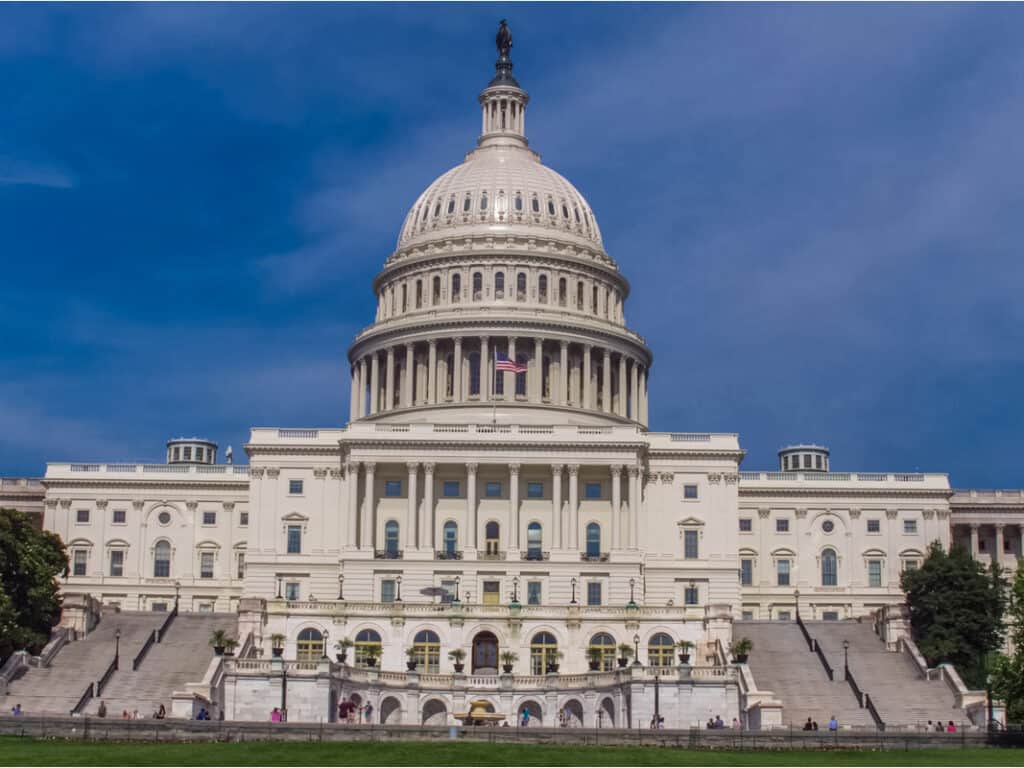ESG’s Impact on Supply Chains: What to Expect in 2024
The advancement towards sustainability is amplifying the significance of Environmental, Social, and Governance (ESG) factors within supply chains. ESG represents a framework of standards pivotal for fostering and upholding a business ethos that is both socially conscious and sustainable.
This discourse will delve into the role of ESG within contemporary supply chains and prognosticate its trajectory by 2024. Additionally, we will dissect the advantages of integrating ESG methodologies into supply chain management, coupled with recommended approaches to execute these strategies effectively. Comprehending these elements presently equips you to adeptly navigate the impending landscape where supply chains are steered by ESG principles.

ESG’s Impact on Supply Chain Dynamics
Environmental, Social and Governance (ESG) criteria have become increasingly important in recent years as the world continues to move towards a more sustainable future. ESG is a set of standards that companies must adhere to in order to create and maintain a socially responsible and sustainable business model. In supply chains specifically, these standards are being used as a way to measure performance, mitigate risk, and increase transparency.
The current state of ESG in supply chains can be seen in the increasing number of companies that are taking proactive steps to implement sustainability initiatives into their operations. These efforts can include reducing carbon emissions, supporting local communities, or ensuring fair labor practices. Companies are also investing in technology solutions such as blockchain and AI to help them monitor their ESG performance across their entire supply chain network.
By implementing ESG strategies into their operations, companies can improve both their supply chain performance and sustainability objectives. This could mean improved operational efficiency through better tracking capabilities or increased customer satisfaction due to more transparent processes. Furthermore, an effective ESG strategy can help reduce reputational risks by mitigating potential negative impacts from suppliers’ actions on the environment or people living near production sites.
Although there are many benefits associated with implementing an effective ESG strategy into your supply chain network, doing so also presents challenges and risks that need to be addressed. For instance, it is difficult for companies to ensure full compliance with all applicable regulations across multiple countries or jurisdictions without having the proper tools or resources in place. Additionally, some stakeholders may not understand the value of such initiatives or might even oppose them due to certain costs involved – which could result in decreased productivity if not properly addressed upfront.
Overall, Environmental Social Governance (ESG) has become an essential part of any successful supply chain strategy today – one that will only become more important as we move closer towards 2024 and beyond. Understanding what it stands for and its implications on your organization now will ensure you gain the most benefit from implementing an effective ESG strategy into your own operations going forward.
The state of ESG in supply chains today
As organizations continue to prioritize sustainability initiatives, they must be mindful of the current state of ESG in supply chains. Environmental, Social and Governance criteria are becoming ever more important for companies to consider when managing their supply chain operations. This has led many businesses to implement strategies and practices that will meet these standards.
However, one obstacle faced is obtaining access to the data and analytics necessary for evaluating ESG performance. Many companies struggle with collecting this information due to a lack of resources or understanding. Fortunately, there are now several solutions that provide real-time data and analytics from global sources so that firms can gain insights into their operations and manage them effectively.
The attitudes of consumers have also become a major factor in influencing ESG goals within supply chains. With the emergence of social media platforms, customers have become increasingly vocal about corporate responsibility and sustainability measures which has prompted companies to strive towards meeting higher expectations for ethical sourcing as well as reducing environmental impact along their supply chain pathways.
Furthermore, the COVID-19 pandemic has had an effect on ESG efforts across global supply chains too. Businesses had no choice but to reexamine their strategies since many suppliers experienced disruption caused by travel restrictions or delays in production due to lockdown orders or customer demand changes. Consequently, firms should concentrate on setting up resilient supply chains that can quickly adapt during times of crisis while still being cost efficient.
In summary, Environmental, Social and Governance criteria have grown even more essential when it comes to today’s global supply chain management practices – both from companies’ perspectives as well as those of consumers’. Companies ought to take proactive steps towards creating sustainable processes if they want remain competitive in this rapidly transforming climate; by recognizing potential challenges associated with implementation alongside the resources readily available for data gathering and analysis, organizations can make sure they reap maximum rewards while keeping risk related with ESG compliance within their operations at a minimum level.
ESG trends to look out for in 2024
As we move further into the 21st century, organizations are increasingly being held to higher standards when it comes to Environmental, Social and Governance (ESG) criteria. Customers and investors alike now demand transparency and accountability from suppliers, with ESG practices becoming a key measure of corporate social responsibility. In this section we will look at some of the trends that could shape supply chain strategies in 2024.
1. Navigating New Laws and Priorities
As the complexity and severity of ESG (Environmental, Social, and Governance) risks continue to escalate, governing bodies worldwide are enacting laws and regulations to ensure companies effectively mitigate these risks. Two recent and stringent legislations, the US Uyghur Forced Labor Prevention Act (UFLPA) and the German Supply Chain Due Diligence Act (LkSG), carry severe consequences for non-compliance.
As we look ahead to 2024, businesses must prepare to navigate the evolving ESG landscape, staying abreast of new laws, adapting their practices, and leveraging technology to meet compliance obligations while embracing the opportunity to make a meaningful impact on society and the environment.
2.Increased focus on stakeholder engagement from investors
Rather than simply relying on financial metrics for their investments, investors are now turning to ESG principles as a way of assessing companies’ commitment to sustainability objectives. This means that firms must ensure they have clear policies in place that demonstrate their dedication to these goals if they want to attract investment.
3.Consumer demand for greater transparency and responsibility when it comes to ESG practices
Companies must be able to prove they are upholding ethical standards across all areas of their business – from labor policies and human rights impacts through to environmental performance – or risk facing reputational damage or potential boycotts from customers. As such, it’s important for businesses to collect accurate data on their performance so that they can provide evidence if requested by stakeholders or consumers alike.
4.Scrutiny of labour practices throughout the supply chain network
Consumers want reassurance the workers involved in producing goods aren’t subject exploitation or unfair treatment so companies must have clear policies in place regarding acceptable conditions across all stages of production – including suppliers and partners further down the line..
5.Green technologies can help reduce reliance on fossil fuels
While providing cost savings through improved efficiency gains; solar power generation, blockchain technology & efficient production methods are just some examples which may become more widely adopted within organizations as part of efforts towards reducing emissions & environmental impact along the supply chain lifecycle process.
6.Responsible sourcing is set to become even more important over time
Customers care about where products come from & what kind of ethics underpin them – leading them question certain products or processes & demanding assurances that goods have been sourced responsibly with minimal harm done either directly via production activities or indirectly via excessive packaging etc.. Companies therefore need implement quality assurance processes alongside responsible sourcing initiatives if they want stay competitive both now & into future years ahead.
In conclusion then understanding & adapting your operations according to your organization’s own specific ESG needs may seem daunting initially but doing so could bring great rewards both now & into future years ahead. Doing so requires careful planning though; implementing meaningful strategies which involve gathering accurate data points & engaging stakeholders regularly should serve you well going forward – allowing you stay competitive whatever 2024 may bring!
The benefits of adopting ESG strategies in supply chains
The implementation of ESG strategies in supply chain management provides a number of advantages for businesses. Enhanced operational excellence, decreased risk exposure, and increased consumer trust and reputation are just some of the benefits that companies can anticipate when they invest in sustainable practices.
To begin with, incorporating an ESG strategy leads to improved operational efficiency. By investing in green technologies such as renewable energy sources or electric fleets, organizations can not only reduce their carbon footprint but also save money on production costs by avoiding non-renewable resources. In addition, utilizing recycled materials or implementing waste management initiatives can lead to higher levels of efficiency within the supply chain network.
Moreover, implementing responsible sourcing initiatives help mitigate risks related to environmental disasters or labour violations along the supply chain network. Furthermore, by focusing on sustainability companies gain greater visibility into their suppliers and manufacturing processes which helps identify any potential issues before they become a problem.
Finally, adopting an ESG strategy is beneficial for improving brand reputation and consumer trust. Customers are increasingly aware of how their purchases affect the environment and society – thus making it important for organizations to demonstrate commitment to social responsibility through sustainable practices. Companies that prioritize sustainability can expect to attract new customers as well as maintain loyalty among existing clients, while gaining favour from investors who seek ethical investments over short-term gains.
In conclusion, there is no doubt that investing in an ESG strategy is advantageous for businesses looking towards long-term success – from improved operational excellence and reduced risk exposure to enhanced reputation among customers and investors alike – making it an essential move for any organization looking to establish a strong foundation for success in the future.
Best practices for implementing ESG strategies in supply chains
The implementation of ESG (Environmental, Social and Governance) strategies in supply chains is a necessary step for companies looking to remain competitive. For successful implementation, businesses must consider the following best practices:
1. Measurement & Monitoring: The first step towards having a sustainable supply chain is collecting data on energy consumption, waste production, transportation emissions and other environmental performance indicators. This gives valuable insights into what needs to be improved upon and helps identify risks and opportunities within the supply chain network.
2. Supplier Engagement: It’s essential to communicate expectations regarding regulatory compliance as well as any ethical or sustainability standards that the company or organization imposes to suppliers so they can understand what is expected from them. These conversations will also help build trust between buyers and suppliers while establishing shared objectives for responsible sourcing initiatives.
3. Procurement Decisions: Companies should factor in labor conditions, carbon footprint associated with transport methods used by suppliers, supplier transparency around materials used in production processes when selecting their partners – not just price point – in order to ensure they are aligned with their values while still providing quality goods or services at a competitive rate.
4. Supplier Management Program: A comprehensive supplier management program should be put into place to monitor supplier relationships closely while holding all stakeholders accountable for meeting established standards – this includes regular reviews of supplier performance against key metrics such as quality assurance levels achieved, delivery times met, compliance with applicable regulations etc.
5 Sustainable Supply Chain Management Strategy: Lastly, an effective strategy outlining goals such as improving operational efficiency while reducing risk exposure associated with non-compliance issues or labor violations throughout the supply chain should be developed. This plan should include specific action plans detailing how these objectives will be achieved over time – investing in green technologies, incorporating responsible sourcing initiatives into procurement decisions, monitoring supplier performance regularly etc.
By adhering to these best practices, businesses can create efficient processes that improve both corporate responsibility objectives and overall operational efficiency – helping them stay ahead of the competition now and into the future.
To find out more about Sedex, visit here. You can also book a call with a member of our team by submitting your details We are here to help you with your business needs and discuss how Sedex can support you in creating a more sustainable supply chain.



